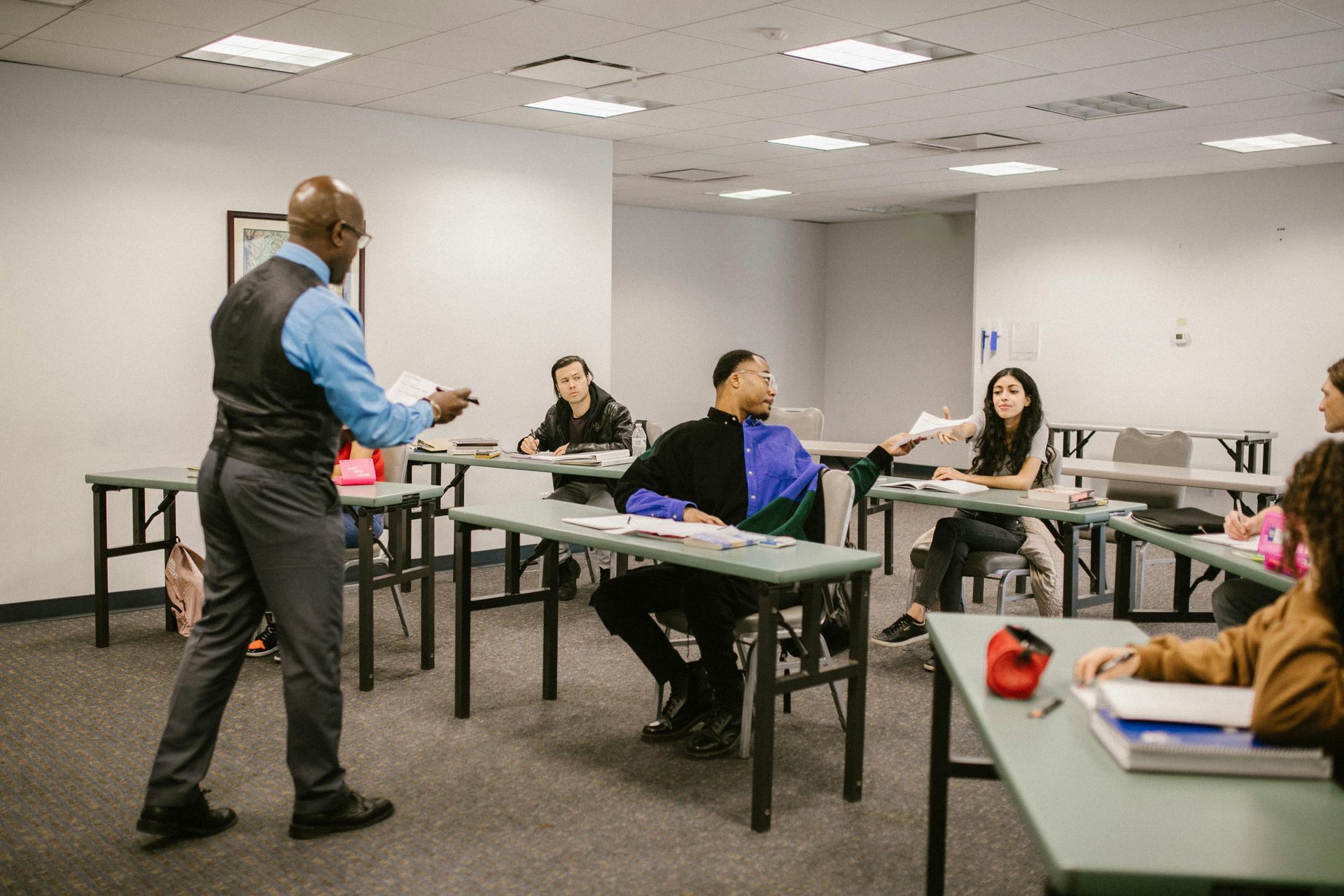IEP or Individualized Education Program and how a Lawyer can help
One of the programs designed to ensure all children receive the time and attention and services they need at school is the Individualized Education Program (IEP). Knowing what the law requires will help you understand when schools fail to follow the program’s protocols, and how Gina DeCrescenzo can represent you and your family in seeking accountability and justice.
What Is an IEP?
An Individualized Education Program (IEP) states the specific services a school will provide for a child with a disability. The program isn’t optional for a school. It’s mandatory for each student with a disability under the Individuals with Disabilities Act.
The law requires the school to draft a program tailored to the needs of each particular child. The goal is to allow that child to progress commensurate with his or her potential. Appropriately ambitious progress, per the law.
Your child’s IEP isn’t developed by any individual but by a team of stakeholders, including you and your child’s teachers, related service providers, doctors and anyone else who has knowledge of your child's present level of performance.
There’s no limit to the number of experts who can contribute to the team according to your child’s needs. For example, the team might include healthcare professionals, psychologists, experts in hearing, vision, speech, and so forth.
Is Your Child Eligible?
Eligible students range from 3 to 21 years old. The child is eligible if the disability impairs academic pursuits. The law recognizes 12 disability categories for specialized education.
- Hearing impairment
- Speech or language impairment
- Visual impairment
- Orthopedic impairment
- Emotional disturbance
- Intellectual disability
- Specific learning disability (e.g. dyslexia)
- Multiple disabilities
- Autism Spectrum Disorder
- Traumatic brain injury
- Deafness or blindness
- Other impairments, including Attention Deficit Hyperactivity Disorder and asthma
If your child's condition is not listed above, that doesn't mean the child isn't eligible. Contact our office for more details.
Getting Started
You can contact the school to request an evaluation for your child if the school has not suspected your child may be eligible and initiated the process. Next, school authorities decide if your child meets the primary eligibility requirement.
If your child meets eligibility, authorities must schedule a CSE meeting to take place within 30 days to draft your child's program, services and supports.
The team then introduces your child to the prescribed services. You should receive regular progress reports regarding these services to make sure they're effective - to make sure they are working and your child is making meaninful progress. The reports are not an extra service. They are required by law and must be given to you, as parents.
The program has to undergo review at least once during the school year. However, you can request more frequent reviews if you have questions, concerns or see any "red flags" that need explanation.
Another type of review takes place every three years. The triennial review is a mandatory review of all necessary evaluations. The evaluations need to be updated so that present levels of performance are recorded and so that prior scores can be compared to newer scores to see if the right amount of progress is being made. The review will also determine what services are needed at the present stage of the student's development.
When an Attorney is Helpful
The federal government spells out the rights of parents with a child needing specialized education. When schools fail to honor your rights, an attorney, like Gina DeCrescenzo, can represent your interests, fighting for the education your child deserves.
If the initial evaluation doesn't conclude that your child is eligible, or the team determines the child is eligible but fails to offer the programming and services your child needs, you have the legal right to a second evaluation conducted by an Independent Evaluator. The right to an IEE is a valuable right under the law and Gina DeCrescenzo can walk you through how to get the district to pay for your independent evaluator.
You don't have to accept every recommendation for how your child should be educated. You reserve the right to object to any suggestions with which you disagree.
Your attorney can review the IEP for its compliance with all relevant laws. If the school is resistant to your preferences, an experienced lawyer may have greater success getting the school to respect your wishes.
If the school still refuses to budge, you have the right to request a due process hearing. Gina DeCrescenzo and her team have litigated countless cases against school districts and are known for their litigation skills and tenacious advocacy.
Throughout the life of your child's schooling, having an education attorney on call could prove invaluable. Gina DeCrescenzo and her team will fight with you every step of the way to ensure your child is receiving everything they are entitled to.
Placements
The IEP determines the most suitable placement or environment in which your child will do best.
Appropriate placements are critical for a student's success, so if you are at odds with the school over placement, consider having an attorney speak on your behalf. A child advocacy lawyer can argue in your case that the placement doesn't match the needs of your child and call for adjustments from the IEP.
The standard procedure involves placing your child in the least restrictive environment possible where your child can excel. In this sense, "restrictive" refers to the amount of special services that are required.
What an Attorney Can Accomplish
An attorney can ensure that your child is receiving the most appropriate education available, including all the services to which they're entitled. This includes verifying that the teachers working with your child are qualified to help kids with specific disabilities develop into more capable and independent adults.
Your attorney can insist the CSE communicate clear annual goals for your child to reach. The goals must be achievable and measurable. They must be specific and understandable. And they must be ambitious. It is always a good idea to get a private provider or doctor involved to weigh in on the child's potential to make sure that the school knows what the child is capable of.
Measurable goals allow the reports on your child's progress to be objective rather than subjective. The reports should also avoid academic, medical, or scientific jargon in favor of language easily understood by the average person.
It's helpful to have a lawyer who will also speak on your behalf if the school fails to provide the necessary physical items your child needs. For example, the district should make assistive technology available to each student with a disability, such as screen readers, text-to-speech software, and interactive whiteboards. If it is not apparent what technolgoy will be helpful, an assistive technology evaluation can and should be paid for by the district so that the child's needs can be assessed and all technology can be explored.
Choose the Right Special Education Attorney for Help With an IEP
There are few gifts you can give your child greater than excellent schooling, but in the case of special education, you need help from experts. One of the professionals you should have on your side is a qualified Individualized Education Program lawyer like Gina DeCrescenzo.
Gina's legal career is focused on fighting for the rights of children. Throughout her career, she has accumulated victory after victory as she has held school districts throughout New York State, including in New York City and Yonkers, New York accountable.
There's no reason you should try to face the complicated education system's bureaucracy alone. Instead, contact the office of Gina DeCrescenzo today to add an experienced special education lawyer to your team.























